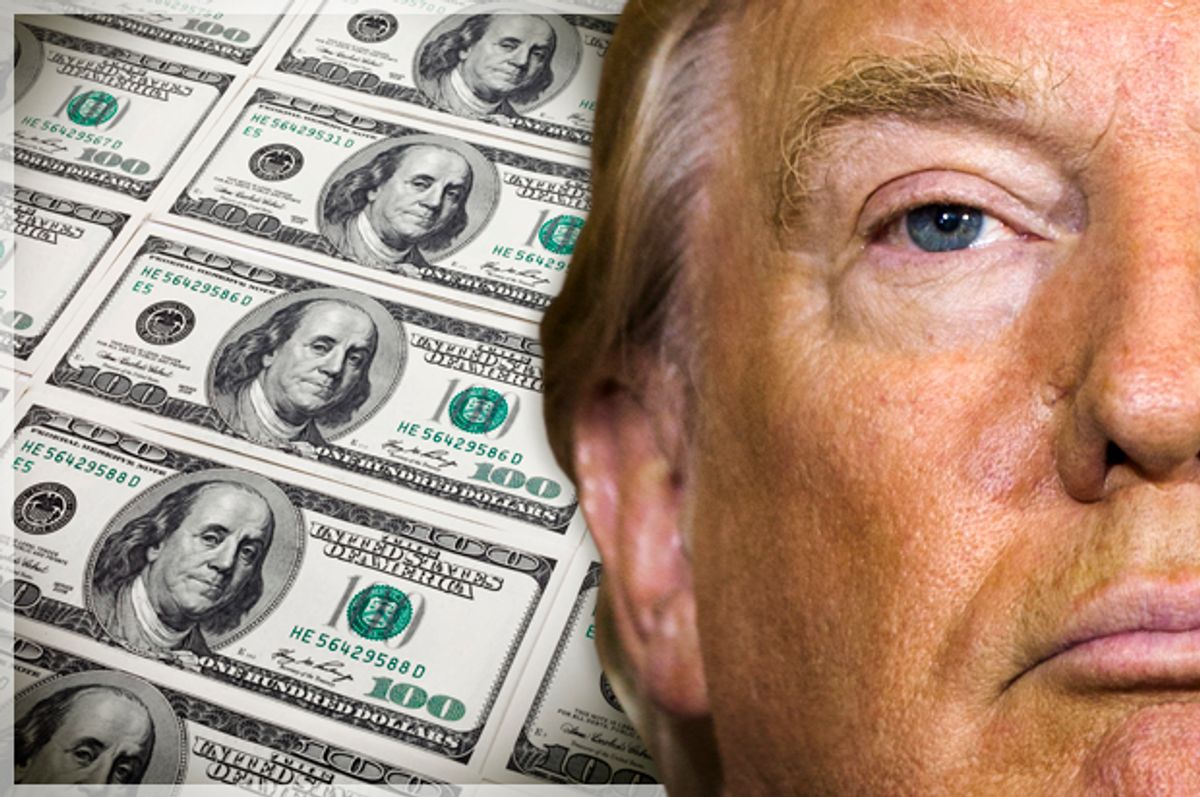If a president is able to potentially profit off of the policies he pursues while in office, his actions can have dire consequences for people throughout the world.
Cases in point . . .
The Trump Organization is breaking its promise not to do business with foreign governments during Trump's presidency
One of the reassurances that Trump gave when concerns were first raised about his ongoing connection to his business empire is that his company, the Trump Organization, wouldn't engage in foreign business deals while he's president. That promise has been obliterated by a recent report from McClatchy that Trump's partner in Dubai has given a $32 million contract to a subsidiary of China State Construction Engineering, which is owned by the Chinese government. They will work together to build a six-lane road as part of a project for Trump World Golf Club Dubai called Akoya Oxygen.
Trump International Hotel is still full of conflicts
The problem with Trump not fully divesting himself from his business empire is that it can create a conflict of interest when powerful people involved with the United States government decide to patronize them. This happened twice this week (that we know of) at the Trump International Hotel — Malaysian Prime Minister Najib Razak and Small Business Administration head Linda McMahon. The Najib visit is particularly problematic, since as The Washington Post reports:
Not only is Mr. Najib known for imprisoning peaceful opponents, silencing critical media and reversing Malaysia’s progress toward democracy. He also is a subject of the largest foreign kleptocracy investigation ever launched by the U.S. Justice Department.
Trump's ethics office makes it okay for government officials to receive legal funds from anonymous lobbyists
To be fair to Trump, this policy did not begin with him. President Bill Clinton implemented a policy in 1993 that would allow government officials to receive contributions for legal defense funds from lobbyists and others doing business with the government, so long as their identities remained anonymous. That said, although the policy has been in effect ever since, ethics officials have urged government employees not to abide by it, with former Office of Government Ethics head Walter Shaub even attaching a note to the guidance stating that it is "NOT CONSISTENT WITH CURRENT OGE INTERPRETATION AND PRACTICE." Shaub's successor, however, has taken off that note and replaced it with one saying the policy "HAS NOT CHANGED."
Treasury Secretary Steve Mnuchin wanted a government plane for his honeymoon
Apparently Mnuchin's PR woes did not end last month, when his new wife Louise Linton (best known as a co-star of the "Cabin Fever" remake) inadvertently drew attention to him for possibly misusing a government jet. It was reported this week that Mnuchin requested use of a government jet earlier this year when he took his new bride on a European honeymoon that included stops in Scotland, France and Italy. The request was turned down, but it doesn't help Mnuchin that it would have cost the government $25,000 per hour to use one of its Air Force jets.

Shares